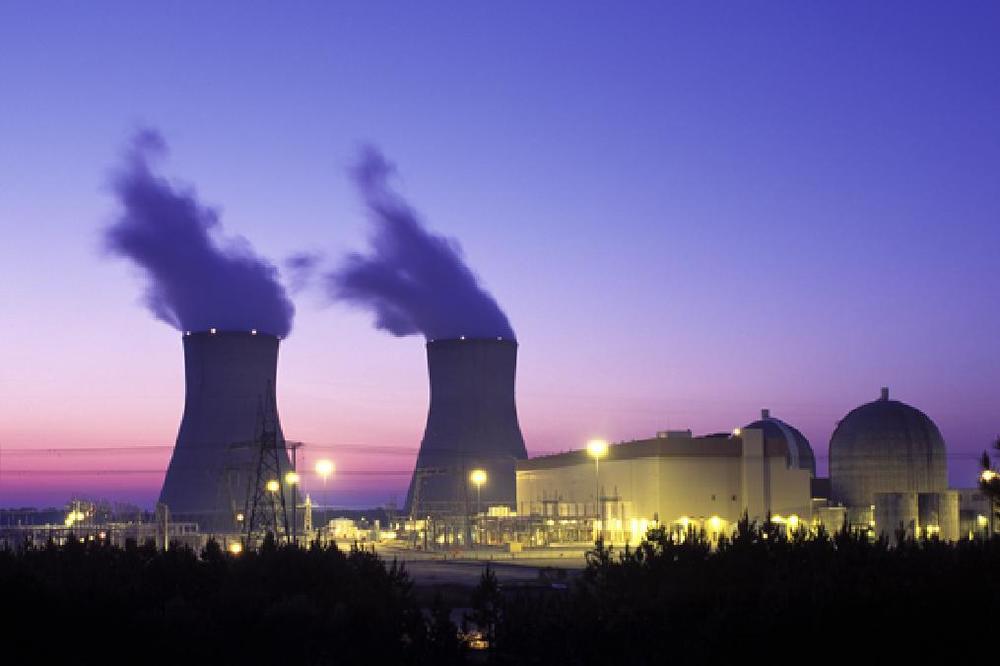Section Branding
Header Content
Georgians Will Pay More For Plant Vogtle Nuclear Expansion
Primary Content
Georgia consumers will have to pay more for power, starting in 2021, now that state regulators have voted to let construction continue on two nuclear reactors at Plant Vogtle near Augusta.
At a hearing Thursday, the Georgia Public Service Commission voted unanimously in favor of continuing construction at Plant Vogtle.
This is despite the project being billions of dollars over budget and years behind schedule.
Kristi Swartz is a reporter with E&E News, an outlet that covers energy and environmental stories.
She joined me in the studio to talk about how much more Georgians are going to be paying.
Interview highlights below
RICKEY BEVINGTON: So why is Georgia Power coming back for more money when they're already guaranteed a profit?
KRISTI SWARTZ: Georgia Power and a group of public power companies have been working with Westinghouse to build these reactors.
There were a number of different changes that had taken place at the site and that led to a lot of different delays and cost increases, and ultimately led to Westinghouse filing for bankruptcy in March.
So Georgia Power, which is a unit of Southern Company, and Southern’s nuclear unit have taken over as the main contractor.
When they did that, they opened up and went through reams and reams of data to say “How long is this really going to take to finish this project?” and “How much is it going to cost?”
And it was significantly different than what had been publicly disclosed before.
BEVINGTON: What did today's meeting actually decide about the construction?
SWARTZ: They did give the utilities some incentives for keeping the project on schedule, and then they placed a number of financial conditions. They were trying to do a lot of different things to chisel into part of what the company owes, to have them take on some more of the risk and somewhat soften the blow to customers.
BEVINGTON: Georgia Power customers are currently paying about $100 a year. You can see it on your power bill. That's going to be going up a little bit.
Is this a raw deal for customers?
SWARTZ: Well, that kind of depends upon who you ask. [Is Georgia Power] taking on most of the risk. Yes absolutely.
The uptick that we will see later is when the reactors actually start coming online.
The flip side of that is there are people who argue if customers were not paying for anything now, the amount that they will be paying later would be significantly higher.
And the utility will say “There was a projected rate increase of about 12 percent and it's going to be at 10 percent.”
So no, I guess it is not as bad as it could have been.
BEVINGTON: You cover energy professionally every day. Why do you think more consumers don't pay attention to this kind of issue?
SWARTZ: I think it's because it's wonky and it's in the weeds and because the lights come on every day no matter what.
They don't really worry about it, and electric companies when they go before commissions to say we need to build power plant X and charge consumers Y and then do Z, a lot of times they use that argument.
They kind of dangle that out there as well. “You know, we could have reliability issues. You don't want to have your air condition going off in the summer.“
They're going to make the lights come on no matter what. And so I think with people that kind of stops there.
BEVINGTON: There are politics at play here. I think it's important to point out that the staff of the Public Service Commission – I mean, these were the workers who do all the research, they crunched the numbers – have argued against today's vote. And yet the elected Public Service Commissioners voted in direct opposition to what their own staff were recommending. Talk about that.
SWARTZ: That happens more often than not. Staff will come in and do an analysis, and the Commission will thank them for all of their hard work, and then go along and do something else, or it might it might be a hybrid of things.
Staff over the years has definitely challenged Georgia Power's cost and schedule and have signaled a lot of warnings and they've been right every time.
To be clear, they did not say that the project should be canceled. But they gave a very clear distinction on what was economic and what was not, and what the company should have to absorb and what they should not.
So even though we have all these numbers on the table, it’s up for debate in terms of what's economic and what's not.


